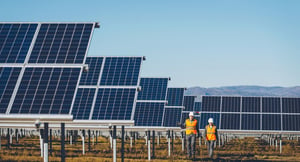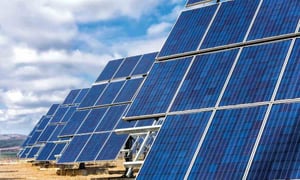UAE-based investment firm Global South Utilities (GSU) has officially broken ground on a 50-megawatt solar photovoltaic (PV) power plant in Sakaï, marking a transformative milestone in the Central African Republic’s journey toward clean energy access and sustainability.
The project, one of the largest renewable energy developments in the country to date, will supply electricity to over 300,000 households, significantly improving power availability while helping reduce carbon dioxide emissions by more than 50,000 tons annually.
To ensure grid reliability, the plant will also feature a 10 megawatt-hour Battery Energy Storage System (BESS), supporting stable and continuous electricity supply.

Boosting clean energy, jobs, and economic inclusion
Beyond the environmental impact, the solar project is set to create new job opportunities within the renewable energy sector, providing a platform for local skills development and contributing to economic inclusion in the region.
The groundbreaking ceremony was attended by President Faustin-Archange Touadéra, Minister of State for Strategic Investments and Major Work Pascal Bida Koyagbele, and other senior officials from the Central African Republic, alongside leadership from GSU.
Strengthening UAE – CAR ties through energy and investment
The Sakaï solar project is one of the first major initiatives following the Comprehensive Economic Partnership Agreement (CEPA) signed between the UAE and CAR in March 2025. The agreement aims to deepen bilateral trade and investment across priority sectors, including energy, infrastructure, and sustainability.
As part of GSU’s expanding portfolio of clean energy projects across Africa, this initiative underscores the UAE’s commitment to climate-conscious investments and to building practical, long-term economic partnerships with nations across the Global South.
Ali Alshimmari, managing director and CEO of GSU, said: “For the Central African Republic, this project will play a key role in expanding energy access to communities across the country.
“It represents another milestone in our commitment to delivering clean, scalable energy solutions in places that others may see as difficult – but which we view as gateways to opportunity and sustainable growth.”
The Sakaï plant marks a significant step forward in addressing energy access challenges in the Central African Republic, while also demonstrating how renewable energy collaboration can serve as a cornerstone for sustainable development and regional cooperation.








